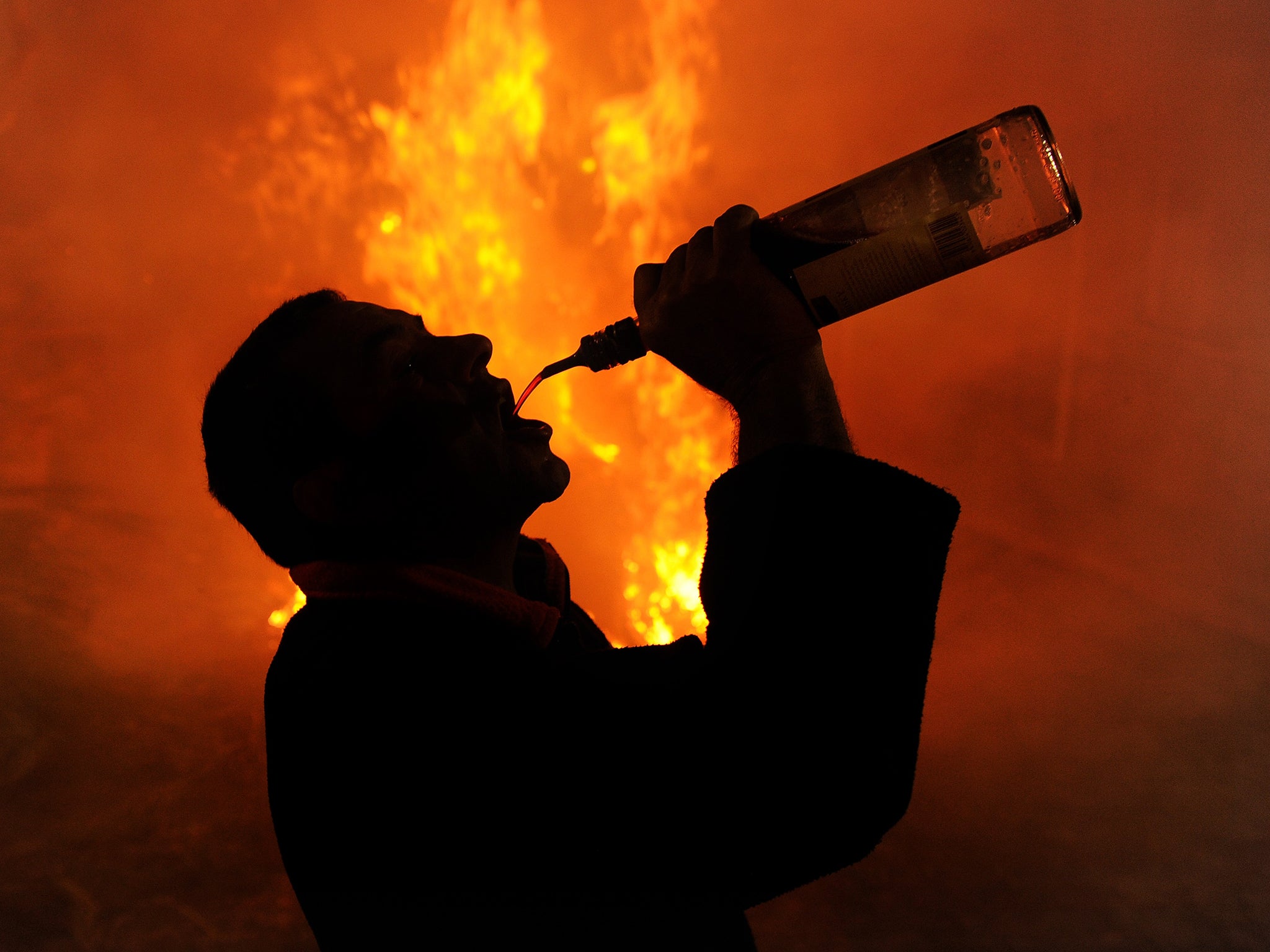Dame Sally Davies’s advice on alcohol is driving me to drink
There are enough anxieties in life without bringing alcohol into the picture

Your support helps us to tell the story
From reproductive rights to climate change to Big Tech, The Independent is on the ground when the story is developing. Whether it's investigating the financials of Elon Musk's pro-Trump PAC or producing our latest documentary, 'The A Word', which shines a light on the American women fighting for reproductive rights, we know how important it is to parse out the facts from the messaging.
At such a critical moment in US history, we need reporters on the ground. Your donation allows us to keep sending journalists to speak to both sides of the story.
The Independent is trusted by Americans across the entire political spectrum. And unlike many other quality news outlets, we choose not to lock Americans out of our reporting and analysis with paywalls. We believe quality journalism should be available to everyone, paid for by those who can afford it.
Your support makes all the difference.To be on the safe side, women should pause before they knock back a glass of wine, and think of the damage it might do to their health. Not my advice, madame, but that of the most senior doctor in Britain, Dame Sally Davies. Every time her fingers fold around a glass stem, Ms Davies claims to weigh up the pleasures of an evening snifter against the distant, harrowing prospect of contracting breast cancer. When you put it like that, the obvious thing to do is leave the glass on the table, but there is a slight risk - which perhaps Ms Davies does not account for - that you are the kind of person who drinks to forget about carcinomas, and, if you followed her example, would soon be unable to say “breasts” let alone imagine their being in any sort of bother.
It has become clear to me over the years that I am neither a doctor nor a woman, in any practical sense. Alcohol is indeed linked to higher rates of breast cancer (lifetime risk goes up by about 1.5 per cent between teetotallers and those who drink guideline amounts). It could also feasibly be said that all I’m doing here, in querying Dame Davies, is attempting to protect my own right – and by extension, the right of all man-pigs - to wheedle ladies into a succession of health-compromising drinks in soul-compromising bars. For sure, it is already hard enough for me to stop a date’s mind wandering to the various ways in which they might die, so such a gambit wouldn’t be totally beyond the pale. But, be generous a moment.
What is concerning is the constant low-level thrum of anxiety following Ms Davies’ advice would bring on. By all means set aside time to worry about how you drink far too much, say once or twice a year, or, if you must be one of those irritating people, for all of January. But to fret about cancer every single time you mix-up a Cheeky Vimto seems likely to stress people out of their minds, besides the criminal waste of Blue WKD.
There are innumerable risks one faces every time one uncorks a bottle, unscrews a cap, or takes a pair of scissors to a £5.50 3l box of Namaqua ‘Crisp and Fruity’. If mine were voiced, and not mashed deep into the subconscious, they would run something like this: Is this going to make my teeth red? Are my teeth already red? Is my teeth being red actually the least of my worries right now, in terms of personal decorum? Can I handle hangovers in the way I used to? Is the next half-hour worth falling asleep on one night bus? How about on two? Are my eyes really as askew as they look in the mirror, or is that an optical illusion? Am I already so drunk that I’m confusing optical illusions with hallucinations? Is it what my liver looks like I should really be worrying about? Or perhaps what my grandfather’s liver looked like? Would a really good look at the pair of our livers – lined up on a table - make me put this bellini down?
As I say, I’m a practised enough drinker that I rarely experience this sort of stage fright. There are enough anxieties attached to life as it is, I feel, without needing to bring alcohol – one of the few remaining substances that are both legal and anxiety-reducing - into the picture (assuming, that is, you drink reasonably, and not in the kind of way that may bring stress to other people, such as your life-partner, or objects, such as tube turnstiles).
Everyone is getting healthier and crabbier and more into kale and less into kaleidoscopic stomach reorientation. The statistics bear this out. But constantly analysing the risks of various behaviours cannot be healthy, or likely to add to one’s stock of general happiness. Apply Dame Davies’s dictum to other activities that marginally increase your chance of dying or contracting cancer, and I bet your diary starts to look as blank as a nurse’s smock. At which point, of course, all there is left to do is drink.
Join our commenting forum
Join thought-provoking conversations, follow other Independent readers and see their replies
Comments